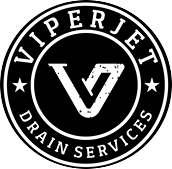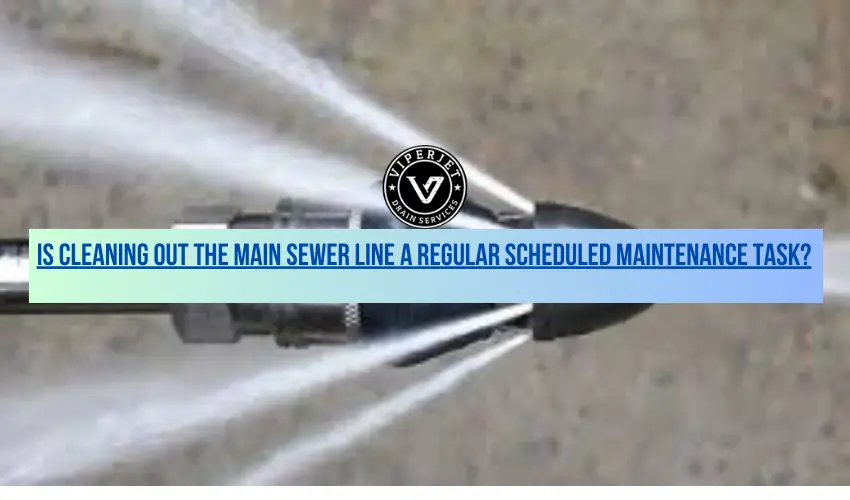Maintaining the plumbing systems in a home or commercial property is crucial to prevent costly repairs and ensure efficient operation. Among these systems, the main sewer line plays a pivotal role, serving as the primary conduit for wastewater to exit the property and connect to municipal systems or a septic tank. But does this vital component require regular cleaning as part of scheduled maintenance? Let’s explore the importance of cleaning the main sewer line and whether it should be a routine task.
The Role of the Main Sewer Line
The main sewer line is the backbone of a property’s plumbing system. It collects wastewater from all household drains—including sinks, toilets, showers, and appliances—and directs it to the city sewer system or a private septic system. Given its function, the sewer line handles a high volume of water, soap, grease, food particles, and human waste daily.
Over time, this accumulation can lead to clogs, blockages, and other issues if not properly maintained. Left unaddressed, these problems can result in unpleasant consequences such as backups, foul odors, and even structural damage to the property.
Common Causes of Sewer Line Blockages
Understanding what causes blockages in the main sewer line can help determine the need for regular maintenance. Common culprits include:
- Tree Roots:
- Tree roots are a leading cause of sewer line clogs. Roots naturally seek out moisture and can infiltrate even small cracks in sewer pipes, eventually causing significant obstructions.
- Grease and Fat Buildup:
- Pouring grease or fat down drains can lead to accumulation within the sewer line. Over time, this buildup hardens, reducing water flow and causing clogs.
- Flushed Debris:
- Items like sanitary products, wipes labeled as “flushable,” and other non-biodegradable materials can obstruct the sewer line.
- Aging Infrastructure:
- Older properties with outdated plumbing systems may experience more frequent issues due to corroded or weakened pipes.
Benefits of Cleaning the Main Sewer Line
Regular cleaning of the main sewer line offers several advantages, including:
- Preventing Blockages:
- Routine cleaning removes debris, grease, and other materials before they cause severe clogs.
- Extending Pipe Lifespan:
- By keeping the sewer line clear, you reduce stress on the pipes, potentially increasing their longevity.
- Avoiding Costly Repairs:
- Emergency repairs due to sewer backups can be expensive. Preventive maintenance minimizes the risk of such incidents.
- Improved Drain Performance:
- Clean sewer lines ensure smoother water flow, reducing the likelihood of slow drains and backups.
Is Regular Cleaning Necessary?
While some property owners may never encounter sewer line issues, regular maintenance can benefit most households and businesses. Whether cleaning the main sewer line should be a scheduled task depends on several factors:
- Age of the Plumbing System:
- Older systems may require more frequent cleaning due to wear and potential buildup.
- Proximity to Trees:
- Properties with significant tree coverage may experience root infiltration, necessitating regular inspections and cleaning.
- Usage Patterns:
- Larger households or businesses with heavy water usage are more likely to accumulate debris in the sewer line.
- Past Issues:
- If the property has a history of sewer line problems, preventive cleaning can mitigate recurring issues.
Recommended Maintenance Schedule
For most properties, cleaning the main sewer line every 18 to 24 months is sufficient. However, this schedule may vary based on the factors mentioned above. Consulting with a professional plumber can help establish a suitable maintenance plan tailored to the property’s needs.
How Professionals Clean Sewer Lines
Professional plumbers use specialized tools and techniques to clean main sewer lines effectively. These include:
- Hydro Jetting:
- This method involves using high-pressure water to clear debris, grease, and roots from the sewer line.
- Snaking or Augering:
- A rotating auger or drain snake is inserted into the pipe to break apart and remove clogs.
- Camera Inspections:
- Before or after cleaning, a camera inspection helps identify potential problem areas and verify the thoroughness of the cleaning process.
DIY vs. Professional Cleaning
While some homeowners attempt to clean sewer lines using chemical solutions or manual tools, professional cleaning is often more effective and safer. Professionals can diagnose underlying issues, such as pipe damage or root infiltration, that DIY methods might miss.
Conclusion
Cleaning the main sewer line is not always necessary as a routine task for every property. However, regular inspections and maintenance can prevent significant problems, especially for older systems or properties prone to blockages. Scheduling periodic cleanings with a professional plumber ensures the health of your plumbing system, saving time, money, and hassle in the long run.

